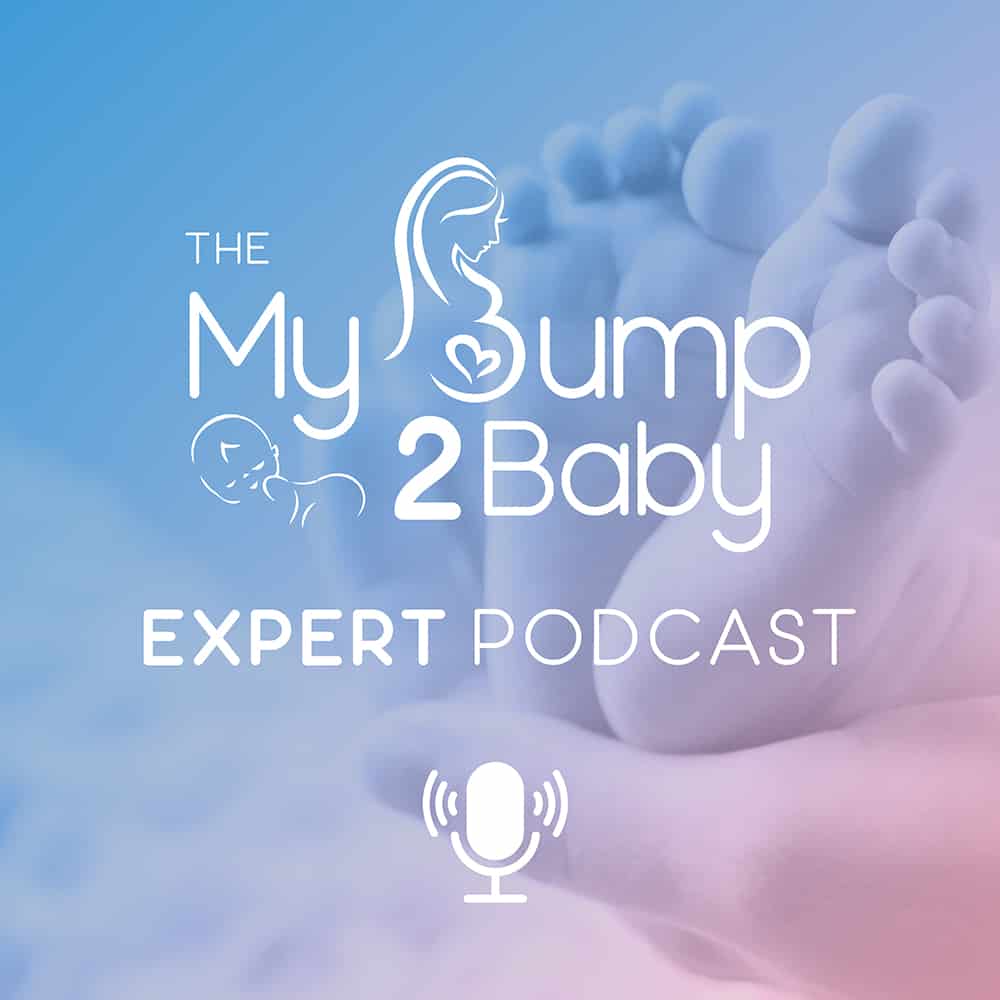- Alternatives to IVF
Today Carla speaks with Marija Skujina from Plan your Baby about alternatives to IVF. Carla struggled to conceive with her second baby and suffered multiple miscarriages too and openly shares this within this podcast. Marija is a Certified Fertility Nurse and Founder of Plan your Baby
Plan Your Baby website https://planyourbaby.co.uk/
Fertility Support https://planyourbaby.co.uk/fertility
Pregnancy Monitoring https://planyourbaby.co.uk/pregnancy/
Plan Your Baby Instagram https://www.instagram.com/planyourbaby/
Links Carla mentions
Fertility journal https://www.amazon.co.uk/Fertility-Journal-Taking-Stress-Conceive
[00:00:00] Carla: We are Google’s number one baby and toddler directory. We cover everything from pregnancy to preschool and we are home to over 8, 000 business listings. Join over 160, 000 parents using our website each month and you can find your local groups, classes, services and support in your local area.
[00:00:30] Carla: Hello, busy mums. Now, I know your life is a juggling act, and I know that because mine is too. I have created the solution to help you stay organised, help you smash your goals, And, help you focus and stay in control. Introducing to you, the Busy Mum Planner. This is your ultimate partner in conquering the chaos known as family life.
[00:01:00] Carla: Are you tired of feeling overwhelmed with endless to do lists, appointments coming out your backside, and school schedules? The Busy Mum Planner is here to rescue you. It’s not just any planner, this is your secret weapon. It’s got sections for shopping lists, daily to do lists, monthly goal section, as well as a monthly budgeting section too.
[00:01:28] Carla: This planner is designed for every part of your life to make you feel in control. Grab yours today. In the link under this podcast.
[00:01:48] Carla: Hello and welcome to My Bump 2 Baby Expert podcast, where we bring experts from all over the UK to answer your questions on everything pregnancy to preschool.
[00:02:11] Carla: Today I am joined. by Marija, a Certified Fertility Nurse and the founder of Plan Your Baby. And today we’re going to be talking about alternatives to IVF.
[00:02:24] Carla: Hello everybody and welcome to My Bumped Baby’s Expert Podcast. Today I am joined by the lovely Marija, a Certified Fertility Nurse and the founder of Plan Your Baby.
[00:02:37] Carla: Hello Marija, how are you?
[00:02:40] Marija: Hello. Thank you so much for having me today. It’s a big pleasure.
[00:02:45] Carla: Oh, I’m really excited to talk to you about this because fertility, even for me personally, I, I had my little George and he’s now seven. And then as soon as I got those kind of 30 free childcare hours, I was like, right, let’s have another one.
[00:03:00] Carla: I thought it would all be smooth and we’d be able to get pregnant quickly, but it wasn’t like that at all. And we had, unfortunately we had a few miscarriages along the way and then we struggled to conceive. It took us years and to be honest, I had no idea what options were actually available to me because I would just kept thinking, what if I get pregnant, I might get pregnant.
[00:03:20] Carla: And I was just kind of in the hopeful phase for so long, but it’s, it’s so good to know what actually. What help is actually out there. Um, so I’m really looking forward to speaking to you today, Maria, about that.
[00:03:32] Marija: Thank you so much. My pleasure. And, uh, yeah, so I just would like to share, um, more information about myself and, um, the new generation of fertility and pregnancy clinic, Plan Your Baby.
[00:03:44] Marija: So I myself, I’ve been working for one of the most successful IVF clinics in the country for more than 10 years. And to be honest, um, I can’t say it was, uh, all about, you know, pure happiness. You’re helping patients on their journey. You support them as much as you only can, but also witnessing what patients have to go through touched my heart so much that I said that, you know, there must be other ways how patients can have access towards the treatment.
[00:04:16] Marija: So was the accessible and affordable treatment and, um, seeing and witnessing patients traveling from Wales, from Manchester, Liverpool to central London, spending endless amount of hours taking unpaid leave, stressing about this and losing jobs, taking, uh, loans to cover fertility treatment. That, that really made me think that there must be something wrong.
[00:04:41] Marija: In 2023, we can’t really allow this. It’s to happen to people when, you know, when they’re heartbroken and, uh, talking about the numbers one in six in UK at the moment can conceive naturally without any help and interference, medical interference. So what Plan Your Baby managed to build is the nationwide clinic.
[00:05:03] Marija: We have more than 350 locations. Across the country where our patients can attend for blood test, ultrasound scan, other procedures, and our core team who has more than 150 years of joint experience in the field, um, being working on the Harley Street, you know, top level clinics. So they review the results, provide the treatment plan and closely monitor our patients.
[00:05:31] Marija: And in the clinic, what we also provide is a very close holding hand approach so our customers not only benefit from doing I would say more than 85 percent of their treatment from the comfort of where they are, but also is the support psychological support mental support. We do have nine different specialists in our clinic working and supporting our patients, including the fertility coach psychologist.
[00:05:58] Marija: We have geneticists, embryologists, our medical director, Dr Sami Almusawa, nurses, midwives, and, and then, like, the idea was is actually to build a complete end to end solution for patients.
[00:06:12] Carla: Wow. Wow. That sounds amazing. And I know there are so many people struggling to conceive. Like you, like you said, one in six, that’s, that’s so sad.
[00:06:23] Carla: Um, but then at the same time to have a solution that’s actually, you know, doable, if you like, cause for some people, IVF just, it just isn’t an option. That sounds amazing. So what type of things do you do? You mentioned like blood tests and things like that. Where does it start? Where do you start with your patients?
[00:06:41] Marija: So, uh, we offer, uh, we offer, uh, different, uh, treatment options, and we always try to encourage patients based, of course, on their personal circumstances, on their diagnosis, to have non invasive treatment, or what we call assistance with conception. So it’s a very close personalised treatment plan where we prescribe blood tests, investigations.
[00:07:05] Marija: We prescribe medications. And, uh, when we do the blood test, we get the results within four or five hours. And that’s actually allows us to have a full control of the menstrual cycle of the certain diagnosis where we can prescribe medications and maximise chances for conception. And the first step would be usually patients.
[00:07:24] Marija: They do contact us over the WhatsApp website or, um, Inquiry line, and, uh, we always provide an initial consultation with, uh, our medical director, and Dr. Sami Almusawa, he, uh, conducts the full medical history, reviews previous results, if that’s been done, uh, already, or previous medical treatments, and then he builds a very tailored treatment plan, and I guess we are, as a company, very lucky to work with, Dr Sami Almusawa, because he has more than 20 years of experience in the field. And he has been working in the top level clinics in UK and abroad as well. And I think he has very controversial view of an approach of how to help patients. Um, within the journey and how to maximise the chance of conception.
[00:08:19] Marija: And, uh, so far we’ve seen incredible results and, uh, in our clinic, uh, based on the treatment that we’ve provided. And, uh, we also offering complete end to end pregnancy monitoring. Unfortunately, still one in four pregnancies worldwide. And as a miscarriage and only 50 percent from those pregnancies are related to genetic conditions and disorders where unfortunately, we as a clinicians can’t do much if it’s especially natural conception.
[00:08:51] Marija: And what we try to do, we try to impact the other 50%, and we try to save pregnancies. So we’re providing. very close monitoring from the moment that we find out patient is pregnant, which approximately is always around four weeks of pregnancy. And we monitor by doing the blood tests, prescribing medications, the first stage of the pregnancy.
[00:09:16] Marija: And we do a routine ultrasound scans as well to make sure that pregnancy progresses as we would like to see it. And the first trimester results to be. quite intense, but thanks to all of our operations and our locations, our patients, they don’t feel this pressure. They, they have ability to travel maximum 15 minutes from where they leave for their appointment. And they do get a top level expertise. And now so far, we’ve seen customers contacting us from Liverpool, Manchester, even from Scotland, telling us that they don’t, they don’t have any support where they leave. They don’t have such a practice where they can have a private healthcare.
[00:10:00] Marija: Accessible and available for them and, uh, and yes, and, uh, we, we did help a few patients who, unfortunately, like you did have a few miscarriages in the past, and they were very scared being left by themselves and rely on the, on the NHS where, unfortunately, the, the waiting time and access to treatment can be quite unaccessible.
[00:10:23] Marija: Um, to be frankly speaking, and, uh, they have contacted us and now, um, they successfully past 12 weeks, um, touched the wood, but everything is going fine. And that’s what actually makes us think that we are actually doing something probably right in this world.
[00:10:38] Carla: You are, that’s so beautiful. And that actually nearly made me cry because I remember with Olivia, my little girl, I was, that, I think I had, I had, well, I know I had three miscarriages before her.
[00:10:50] Carla: And, um, I literally, it was like that first 12 weeks, you feel so scared, so lonely. I mean, you’re scared to go to the bathroom in case, I mean, it sounds so silly, but any kind of, You know, when you early stages pregnancy, you know, you get the discharge at the beginning, every time you’re out and about and you think, Oh my goodness, is that blood?
[00:11:10] Carla: Is it not? You know, your mind can play so many tricks on you and to have that support offered what you guys do. I would have absolutely loved that. That is amazing because it’s so, so scary. The time, uh, that first 12 weeks, especially if you’ve, if you’ve been through terrible miscarriages and things like that before it’s, it’s scary.
[00:11:32] Marija: It is very scary. And, um, I just from the bottom of my heart, I so disagree when I hear from our patients that were when we were told that we can do investigations and we can help you after you have three or more miscarriages. And it’s honestly, it’s, it breaks my heart. So how can you say to someone that it is okay to lose three babies and then come back to us and we will be able to perform some investigations and tests to understand why did that happen.
[00:12:04] Marija: Well, but, and, and actually it get just dismissed and over the sudden to have a miscarriage potentially became a normal that it’s common, but it’s normal. Well, it’s actually not normal. You are going through the loss. And it’s a, it’s a, it’s a trauma. You get traumatised and it’s very difficult to recover that easily without an appropriate help.
[00:12:28] Marija: And that’s what we also try to change by, by providing a psychological and mental support to our patients, um, on, on the journey, because we, we should not dismiss this fact that, um, You know, losing a baby, it’s, it’s never should be considered as something that, you know, it’s, it’s normal.
[00:12:48] Carla: I agree. I agree. Totally. And that, that was, um, what happened to me after the third one. Um, they still kind of, it wasn’t really, they put me on a waiting list then and the waiting list was so long as well that I decided at that point, right, I’m going to go, um, and, you know, Try and find out myself what options are out there, but, but then, you know, it’s hard to know what options are out there because if you, you know, there’s not much information really, is there around.
[00:13:16] Carla: So it’s great that we’re recording this and wow, the, the stuff that you guys can help with it is just amazing. So in regards to, um, the NHS, is it after the three, did they say they’ll help you with further investigations after three miscarriages? And then is it like what happened to me where you do go on a waiting list then?
[00:13:36] Marija: Yes, unfortunately, it’s still the situation where GP or hospitals will refer to a miscarriage clinic or unit where the investigations will be offered. And part of the investigations potentially can be as a genetic test, chromosomal carrier type. Um, also thrombophilia screen tests, et cetera. So there are a lot of things that can be done to understand why exactly the miscarriage happened.
[00:14:05] Marija: Uh, what we are really focusing on as well, we are focusing on something that’s called unexplained infertility. So it’s very interesting statement, unexplained infertility. Well, probably it’s called this way because we just haven’t. found out the reason, but it can’t be unexplained. And, uh, our clinic is also very closely focusing on, uh, reproductive immunology.
[00:14:30] Marija: And we truly believe that some patients, they really require very close monitoring from that perspective to help their body. not to reject an embryo and the pregnancy. So there are some treatments, quite effective treatments that can be, um, offered to patients with a correct counselling, obtaining consent form, providing the research papers and proof that, you know, it can help.
[00:14:55] Marija: And, um, and that’s what we, we try to do as well. So based on the case to case where we see patients with, um, The current miscarriages. So we do try to deep, deep, deep down and find the cause. Why, why exactly it happened with NHS. Unfortunately, the waiting time can be, as you said, quite long. And we did have patients who waited for the consultation of the miscarriage and.
[00:15:19] Marija: investigations to come through more than six, eight months. And that’s quite a long period of time, especially if the time is not on your side. So let’s say if, um, we have a patient 40 and above, then this time is really crucial because potentially with, within this eight, nine months, patients are in reserve will only reduce and then she will, she will struggle to conceive naturally, not even talking, you know, about IVF because NHS, uh, will disqualify you from NHS funded treatment, um, after a certain age.
[00:15:59] Carla: Goodness, yeah, it’s so sad that, and like you said, that eight months of waiting, I mean, seven, eight months, it’s eight months of hell for someone trying to conceive, because you like, I mean, I used to go through where, you know, you get the time of the month, you’ve grieved that you can’t get pregnant, and then you’re almost excited for a week or two, while you might again, And then you’re kind of checking your body, thinking, Oh, is that a tingle?
[00:16:24] Carla: Am I pregnant? Am I not? I’m overthinking everything. And then that time, that period comes again. And it’s almost like you’re, you’re grieving again for another, another baby that you haven’t got pregnant another month. So, so it’s, it’s very, very traumatic, um, and a really, really hard time when you’re trying to conceive.
[00:16:44] Marija: No, of course. And, uh, and I think, um, this is actually where we try to, to step in and, uh, uh, when we see patients waiting for so long, we always encourage like, you should not spend a year, you know, waiting, let’s do some investigations. Let’s, let’s try with something that potentially may help you. It may not necessarily be IVF because As a team, we truly believe that IVF should be the last resort option.
[00:17:14] Marija: It’s extremely expensive. It’s very invasive and sometimes can carry quite significant side effects from, from the treatment. So patient may suffer like a blood clottings and, um, hyper-stimulation, et cetera. And, um, A huge number of IVF cycles we believe potentially could have been prevented. And we also, um, when we, when we do, uh, speak to our clients and offer initial consultations and when we discover that patients tried, you know, for two years conceiving naturally and then NHS made them wait.
[00:17:48] Marija: Um, this is the time when actually the option of accessible and affordable treatment should come, um, to their doorstep to offer them options, uh, of quality treatment. It’s a medical treatment based on their specific needs and diagnosis, but then the, the fee of this is really one tenth of what IVF costs.
[00:18:09] Marija: And, uh, and that’s what I think patients, they do deserve to have really an options, because It just happened that IVF, it’s quite new field, but through the social media awareness and, uh, just the global infertility rates and, um, you know, how huge is the problem. The patients, they developed, I would say, even a fear or scare not to being able to conceive.
[00:18:36] Marija: And when they do approach their doctor, unfortunately, the only option. that they hear, it’s an IVF unit. But then when you do go to IVF unit, majority of the clinics will immediately offer you IVF treatment, where in many, many cases it can be prevented.
[00:18:54] Carla: That’s great. I honestly think it will be so helpful. And just to finalise, I mean, do you have any personal stories or case studies that illustrate the impact of the inaccessibility of fertility treatment?
[00:19:07] Marija: Yes, it’s actually very interesting that you’ve asked because very recently, we had a few patients. I mean, we, we can actually present so many case studies, but I will probably talk about the most, the ones that, who touched our heart.
[00:19:22] Marija: One of the patients, uh, she was 39 at the time when she contacted us with a very low ovarian reserve, and she was told that she needs IVF. And she did try to conceive for a year naturally, nothing happened. And that’s also, it was her second, second baby that she was trying for. And she did approach us, um, someone I think your friend, very close friend recommended us and, uh, we did do a very thorough investigations.
[00:19:51] Marija: She only had one treatment with us, assistance with conception, where we prescribed her correct medications, tailored her treatment plan and she conceived from the first treatment and she avoided IVF at any cost of it. And, uh, and yes, so she’s actually, um, uh, very close to delivery. So, so that’s exciting to hear from her.
[00:20:17] Marija: And we have another case where a patient actually did try to conceive for about seven years. And unfortunately, um, she, she was the one that, you know, I don’t know where to go, who to approach. There is no one to talk to and what kind of help I should seek. And she was very, um, stressed to, to go to IVF clinic.
[00:20:41] Marija: She didn’t know her options. And then she came to us. And, um, so we are talking about so many years of trying to conceive. And, uh, again, so, uh, we were quite lucky. She also got pregnant from the first, uh, round of treatment with us, which actually is also made us think that, um, we do provide a right approach to patients where we apply our very strong clinical expertise, uh, by trying to understand the causes of infertility.
[00:21:10] Marija: And then we try to, to help patients. And, um, we also had very recently a patient who, who needed Pregnancy monitoring and she did contact, she did contact us and, uh, she lives very, very far away from, from London in the countryside. And, uh, and then she, she told us, uh, like after we’ve monitored her for, for a couple of weeks, it’s like, it’s really sad that I didn’t hear about you, uh, when I had my miscarriages because the way, the treatment, how you provided, the communication, the access to, to investigations, your, your medical background, so it saved your pregnancy. And um, and that’s, that’s really, this is actually, you know, really makes us think that we, we are on the right, right pathway to, to help patients. And especially when, um, IVF is so expensive and, um, it, it does cost between seven to ten thousand pounds.
[00:22:12] Marija: And especially if you don’t live in, uh, in London and if you’ve found a clinic that, that is based in London, you have to commute hours and hours prior your appointment, taking trains, spending money on travel tickets, then you have to take time off from work. And quite often, almost in about probably 90 cases, either it’s an annual leave that patients do take to cover the time for futility or it’s It’s an unpaid leave and taking unpaid leave, it’s actually creates a financial burden for the patients.
[00:22:49] Marija: And this is also something that in the current situation, we can’t dismiss because on top of the treatment, how expensive it is patients they do. Lose a fraction of their salary by taking the unpaid leave and also a lot of patients. They do not get support on their journey at work in their work environment And that’s also something that we do try to help with to our patients very recently We have launched a mobile phlebotomy within the M25, and hopefully we will be able to offer that and extend, um, geographically the service.
[00:23:27] Marija: So mobile phlebotomy means that for a cost of less than an Uber ride, the nurse will come to the patient’s home or workplace, will take the blood test. And the sample will be delivered to our laboratory and we will get the results within four or five hours. So that means if, uh, there is a meeting or something that patient can’t cancel and, but there is an appointment for a blood test during her treatment.
[00:23:53] Marija: So we try to completely take away the stress from the patients and we arrange the nurse to come to their home. It can be as early as seven o’clock in the morning or to come to the workplace. Do the blood test. It takes a couple of minutes and then patient can continue with the, with her daily routine without feeling stressed and worried that she’s missing out, uh, either on her treatment or she’s, um, putting her work at risk or under unnecessary stress.
[00:24:24] Carla: That’s great. That is, it’s great. It just sounds amazing that there’s, there’s other options out there. And like you said, IVF is quite, you know, do you have to give yourself injections every day with IVF? I’m not actually sure of the process.
[00:24:40] Marija: Um, yes, IVF, it’s incredibly intense and invasive, um, treatment.
[00:24:46] Marija: Some patients, they do inject even multiple times during the day. So imagine you have to wake up at five, six o’clock in the morning, you have to do the injection, then there will be some injections during the day, during the evening. And, uh, well, I myself… I have a phobia and it’s so funny. I’m a medical practitioner, so I should be fine, but no, I can’t administer myself an injection and I’m afraid even to do a blood test.
[00:25:12] Marija: So, and imagine that you actually have to inject multiple times a day and patients actually at the end have hundreds and hundreds of syringes once they finish the treatment. So, um, and the treatment that what we are offering. We we do prescribe stimulation as well. So, uh, that can be given as a tablets tablet version.
[00:25:33] Marija: Sometimes it can be an injection but very short course. So it’s definitely not as as invasive as IVF as a clinic. Uh, we did receive a lot of inquiries from the LGBTQ community and, uh, also from the patients who require egg donation or sperm donation. And we did open an IVF clinic within Plan Your Baby Services.
[00:25:58] Marija: So we do offer IVF as well for those who are in need, or let’s say when IVF is completely unavoidable, right, but where this is the only option. So we do offer IVF, but again, IVF. happening with us at a different level. So patients, they can do majority of the treatment from the comfort where they are, and they only travel twice to our laboratory, which is based in central London for the egg collection and embryo transfer, but the rest is done from the comfort of, of where they are.
[00:26:32] Carla: That’s brilliant. That is so good. So Maria, if someone wanted to find out what, how you guys plan your baby could help them, how would they get in contact with you?
[00:26:43] Marija: Yes. So, um, they simply can, uh, message us on a WhatsApp from, uh, so on our website, we have, uh, uh, an icon, WhatsApp icon, and simply they can WhatsApp us and we reply straight and forward, straight away.
[00:26:57] Marija: Uh, or it’s an email info at planyourbaby. co. uk. Uh, patients all also have access, um, to inquiry, um, uh, email on our website. Also, we are very active on the social media, Instagram and Facebook, so they can find us there as well.
[00:27:16] Carla: Oh, that’s brilliant. And you share some great tips on there. So definitely give them a follow.
[00:27:21] Carla: And, um, thank you so much, Maria, really, really appreciate you coming on here and sharing all of that amazing information.
[00:27:30] Marija: Thank you so much for, for having me and it’s a pleasure, honestly, it’s a pleasure to talk about such a sensitive topic and to, to help more and more patients at least to find the right solution, what, what they deserve.
[00:27:43] Carla: Absolutely, thank you.
[00:27:49] Carla: Thank you so much for listening to My Bump 2 Baby’s Expert Podcast. If you would like to make contact with Maria and the team, you can click the links underneath this podcast to find out more information.
[00:28:06] Carla: My Bump 2 Baby is one of the UK’s leading parenting platforms. You can find local pregnancy to preschool groups, classes and lessons wherever you are in the UK.
[00:28:19] Carla: Not only that, but you can read our honest reviews on the latest products, days out and services that you as parents need to know about. We also work with trusted financial advisors. family law solicitors and now estate agents too. If you would like to find your nearest trusted expert head over to www. mybump2baby. com











